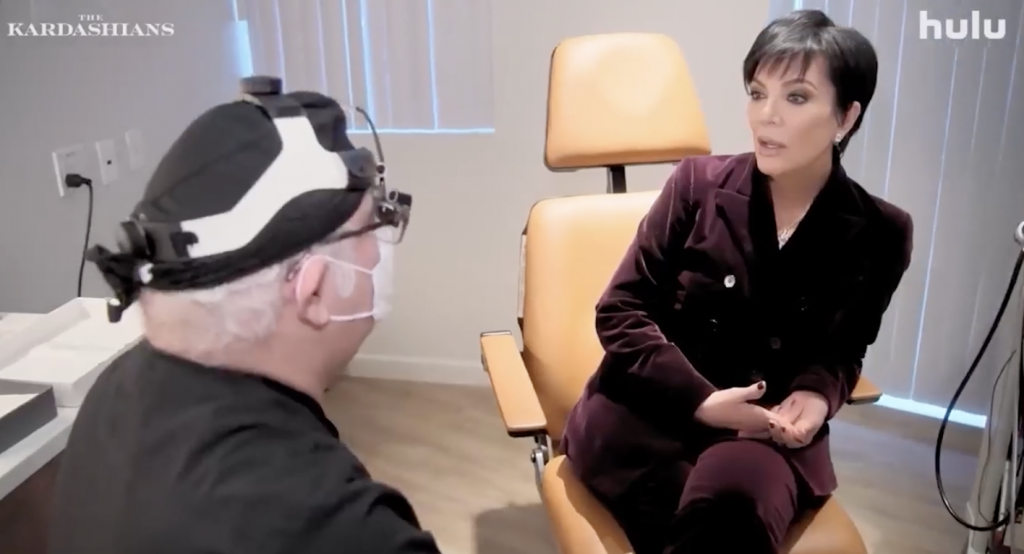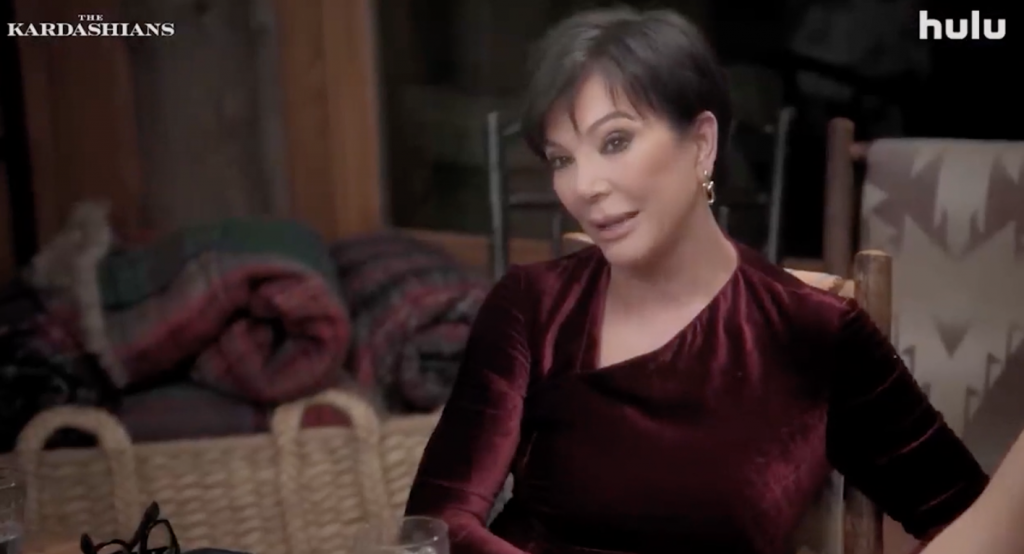Finding a Lump
- In a teaser for Season 5 of The Kardashians, Kris Jenner, 68, shares that a cyst and small tumor were found after a scan, but the clip cuts off and no further details are given.
- While some cancer patients may argue against using a cancer scare or diagnosis for a show promo, it is also useful to raise awareness about cancer screening and prevention.
- A cancer scare, whether it winds up being cancer or not, can be very difficult to manage, and there are coping skills to help navigate through anxiety or depression affecting your daily life activities. Check out SurvivorNet’s mental guide HERE for resources that can help in between appointments.
“I had my scan. They found a cyst and like a little tumor,” the business mogul, 68, shares in the clip with her eyes welling up with tears as daughters Kendall and Kylie also become emotional.
Read More
However, any publicity for getting into the doctor and getting checked for potential cancer is good publicity — just know that the majority of cysts and tumors are non-cancerous.
Since most details of the Kardashian-Jenner family’s lives get reported over the course of filming, it is safe to say that Jenner is okay, but it’s up to her when she will disclose those details, and it looks like fans will have to wait until May 23 for the show’s premiere to find out exactly what happened with her health scare.

Regardless of the decision to film the experience, going through any kind of health scare is, well, scary, and a challenging time for most people. It’s also worth noting that Kris Jenner sadly lost her husband Robert Kardashian to esophageal cancer.
The late attorney, who died in 2003 at the age of 59, is the father of Kourtney, Kim, Khloe and Rob Kardashian, so the heightened emotion from that alone is understandable.
Cysts Vs. Tumors
As far as learning the difference between a cyst vs. tumor, according to Mayo Clinic, cysts and tumors are “two distinct entities.”
A cyst is described as “a sac that may be filled with air, fluid or other material.” Most cysts are benign, or non-cancerous, but “sometimes cancer can cause a cyst.” Cysts can form in any part of the body.
A tumor, whether it’s small or large, is “an abnormal mass of tissue or swelling,” which can also form in any part of the body. Tumors can also be benign or malignant, which means cancerous. Out of the two, cysts are mostly non-cancerous.
Cancer or Cyst? How to Tell the Difference?
While tumors have a higher chance of being cancerous, most tumors are benign as well. For example, with a breast cancer tumor, roughly 80 percent come back non-cancerous.
Getting thoroughly checked out is a must, but try not to overly stress until you have the results, which is easier said than done but is what most medical experts advise. Busying yourself with healthy activities to pass the time or spending time with family or friends can help during this often agonizing waiting period.
Advocating for Yourself When Finding an Unusual Lump
If and when you find some sort of unusual lump in or on your body, it’s important to get in to a doctor right away to get checked. If it something that appears minor, give it a few days, and if doesn’t go away, changes form, or gets bigger, it’s always a good idea to act fast just in case.
Being your own advocate is always important when it comes to cancer care, but it’s even more significant if your doctor might be dismissing you because of the color of your skin, gender, or other assumptions.
Watch: The Importance of Being Your Own Advocate
Unconsciously, some physicians might assume that certain racial groups have less education, or are less able to afford some treatments, and may not offer them all the information or therapy that they could. (Perhaps even judging for being a super wealthy and famous reality star.)
By advocating for yourself, you can make sure that your doctor sees you as an individual, and doesn’t fall back on assumptions.
6 Actionable Steps to Deal With Stress Positively
Since Kris Jenner is often (somewhat humorously) known for enjoying a few drinks here and there, we thought it might be useful to include some tips on how to combat a cancer scare or diagnosis without turning to alcohol, as that response can be common during challenging times. Or at any time!
Survivor and wellness expert Victoria Martin, in a prior interview with SurvivorNet, admitted she self-medicated with alcohol when she was going through breast cancer, and thankfully wound up turning her life around with better habits.
Sharing her insight, Martin gave us six tips on how to stay clean or break an unhealthy habit while dealing with the stress of a cancer diagnosis or treatment:
- Mindset: The way you frame this journey of change makes a huge difference. Instead of looking at it like this is something you have to give up, try making a tiny shift in your language and thinking that still feels true. Have an open mind and think about what you will gain and learn, rather than approaching from deprivation.
- Be Curious: If you are trapped in a habit, which is no longer serving you, the shame cycle is all too familiar. Does it feel like a tired tape playing over and over in your head? What would it feel like to experience some new thoughts and feelings to replace the worn out ones? It is empowering to realize that you can change your patterns and see what is on the other side.
- Understand This is Not the Garden of Eden: Thinking of anything as “forbidden fruit” creates even greater cravings, feelings of resentment and deprivation. You are simply getting curious and creating changes that you get to make. Also, emotional attachments to our habits are very real, so it is perfectly healthy to acknowledge and honor these feelings.
- Create a Toolbox: Life can be hard. We don’t always get to choose our “hard,” but in this situation, you do. Habits, which no longer serve us, did serve a purpose at some point, and that is part of why we use them past their expiration date. You may be surprised at how uncomfortable some moments can be, but you can learn tools and tactics that will make it easier than staying stuck.
- Find Your People: You are not alone. Whatever your “thing” is (maladaptive coping skill), you are not the first one to use it. Luckily, there is strength in numbers and a community where you can connect with people who understand what it is like. Sharing your experience won’t just help you feel less alone, but you will be helping others.
- Drop the “Shoulds”: One of the quickest ways to be defeated is by “shoulding ourselves.” Expecting to be perfect and tearing ourselves down will only lead to our maladaptive habits gaining more of a foothold. Practice speaking to yourself the way you would speak to a friend, and see how kindness gets you moving in the right direction.
Learn more about SurvivorNet's rigorous medical review process.


